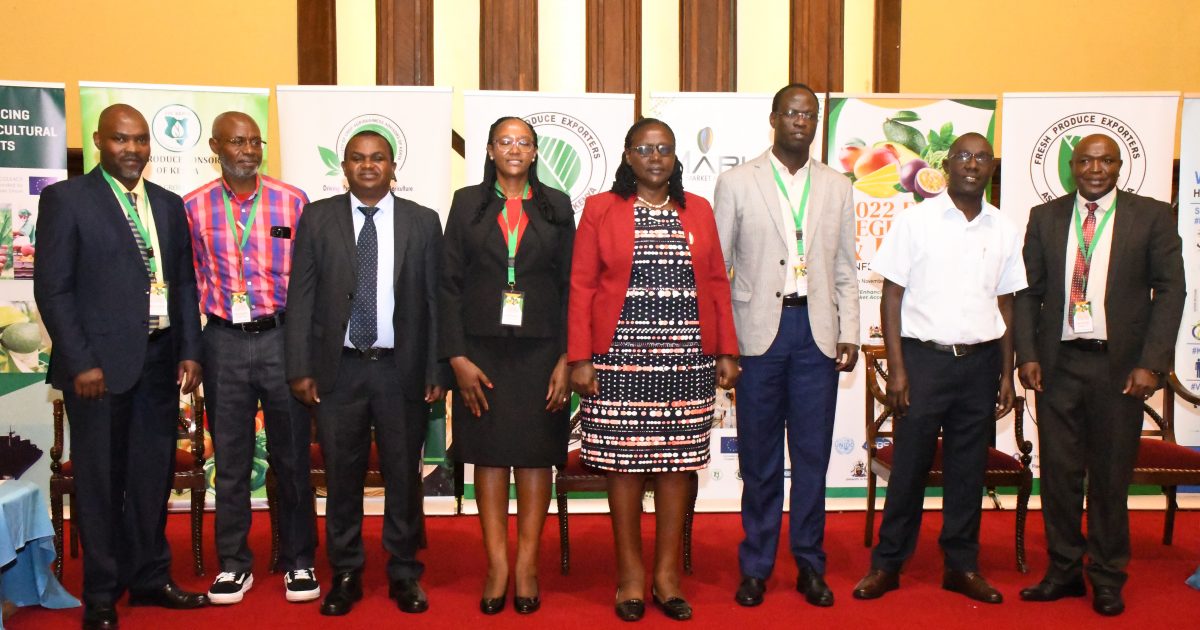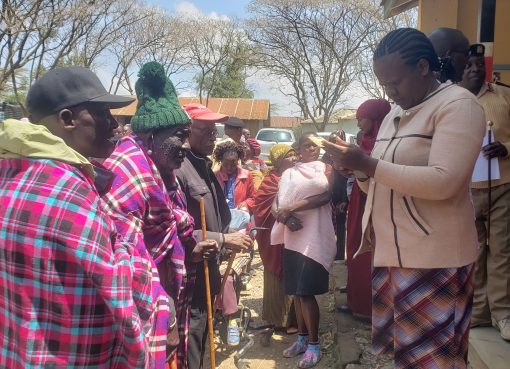Key private and public players in fruits, vegetables, herbs and spices sector have joined hands to address challenges they faced, aimed at coming up with solutions to promote competitiveness in the larger horticulture sector.
Speaking during the official opening of 2022 Fruits, Vegetables and Herbs exhibition in Nairobi, under the theme, Enhancing Productivity, Quality, Food Safety and Market Access for fruits, Vegetables and Herbs, Agriculture and Livestock Production CS Mithika Linturi said horticulture sub sector is a major category within agriculture, with 201 different products, which accounts for 80 percent of the total crops being grown in the country.
In a speech read on his behalf by the ministry’s Head of Marketing and Agriculture Advisory Services Jane Wambugu, Linturi noted that the main objective of the two day conference was to bring together stakeholders both public and private in the Fruits, Vegetables and Herbs industry to discuss challenges and opportunities in the sub sector, with great emphasis on promoting the competitiveness of Kenya’s produce through greater adoption of business models that will guarantee quality increased production and enhance market access.
The CS stated that according to Kenya National Bureau of Statistics (KNBS) 2020 report, the sub-sector continues to register an annual growth rate of about 15 percent, generating approximately 36 percent of Kenyans Agricultural Gross Domestic Product, while it employs more than 6 million Kenyans directly and indirectly.
“The foreign exchange earnings from the horticulture sub-sector grew by 4 percent to Sh157 billion in 2021 from Sh150 billion in 2020.The foreign earnings from the sub-sector surpassed the tea industry in 2018 and the gap earnings has since been widening,” said Linturi.
He added that there are more than 150,000 small scale farmers participating in value chains for export market, with large scale farmers/small scale linkages as driving force as well as marketing strength.
However, the CS noted that despite the impressive growth in the sector, the industry is yet to achieve full potential due to various critical challenges that need to be addressed in a coordinated manner.
He said the challenges are spread in all the five units of the different horticultural crops value chain and they are unique depending on the specific crop in question.
These challenges, Linturi cited, include pest prevalence, weak compliance with sanitary and phytosanitary standards, high post-harvest losses and poor market access.
Other challenges as identified by the EU-funded MARKUP Kenya project implemented by United Nations Industrial Development Organization (UNIDO) include among others, insufficient risk-based approach to food safety control and management, weak inspection systems along the entire value chain, and weak ‘farm to fork’ based traceability system.
Notably, he stated that inadequate capacity of actors to meet code of practice (GAP) and other regulatory requirements like private Standards-Global Gap has posed a challenge for Kenyan market access to the high end market.
He said some factors that have made Kenya produce uncompetitive are high tariffs, existence of non-tariff barriers and high freight.
On his part, Director of Horticultural Crops, Benjamin Tito, said strategically we should embrace ourselves for tough times, following the ongoing drought, thus the need to come up with strategies to deal with the very many challenges that the country was facing in the horticultural sector.
“The biggest challenge for this year’s performance in horticulture is the issue of the climate change related undertakings, bearing in mind for the last 40 years, we have never had such a drought,” said Tito.
He emphasized the disconnect between research institutes and institutions of higher learning saying the anomaly is part of the problems we are facing today.
The Crops Director recommended that it was high time for research institutes to pool knowledge from the university students and institutions of higher learning, while challenging them to give a solution to the challenges we are facing.
In his remarks, the EU Chief Technical Advisor for MARKUP Kenya, Stefano Sedola said there was a need for stakeholders across the entire supply chain to come up with lasting solutions to the challenges, which will provide a platform for Kenya to realize its potential in the production and marketing of Fruits, Vegetables and Herbs.
“For us to achieve this, we require a concerted effort of all stakeholders in the horticulture value chains including farmers, traders, business member organizations, extension service providers, government, development partners and researchers among others,” said Sedola.
The conference is being organized within the framework of the EU-Funded MARKUP-Kenya project, led by FPEAK, FPC Kenya, KEBS, KEPHIS, AFA/HCD, PCPB, KALRO, UoN, SOCCA, and JKUAT under the guidance of UNIDO.
By Catherine Muindi





